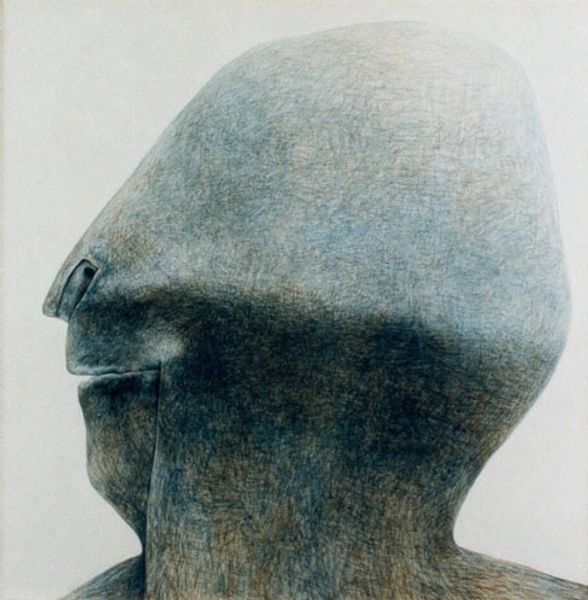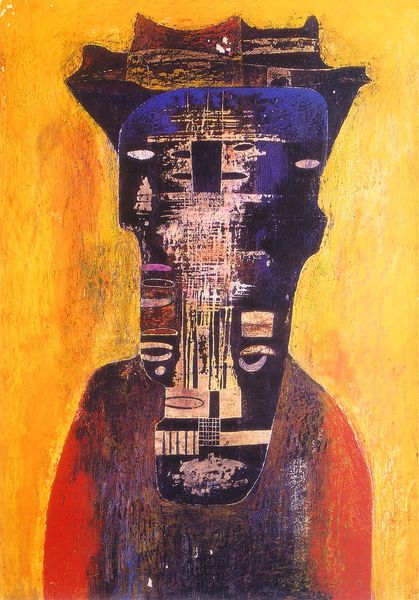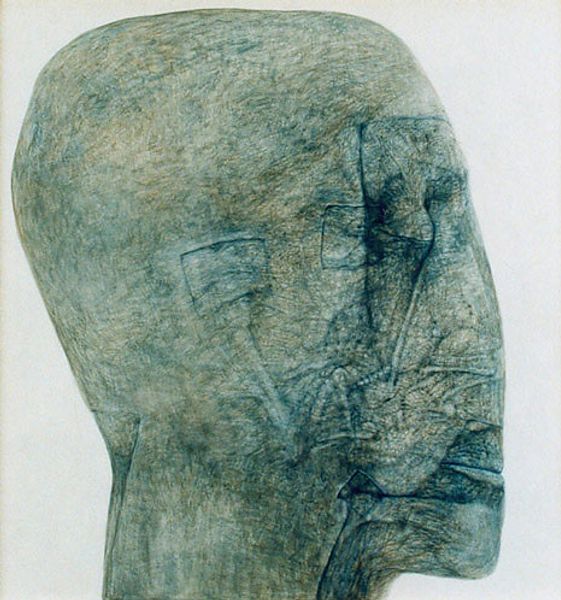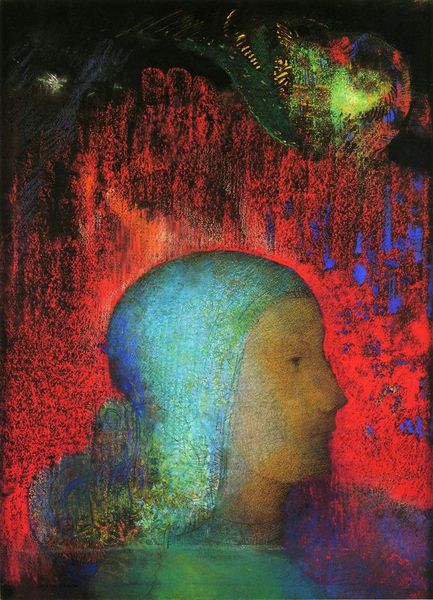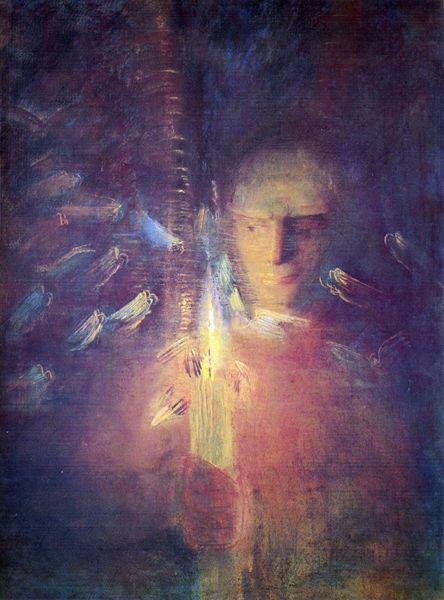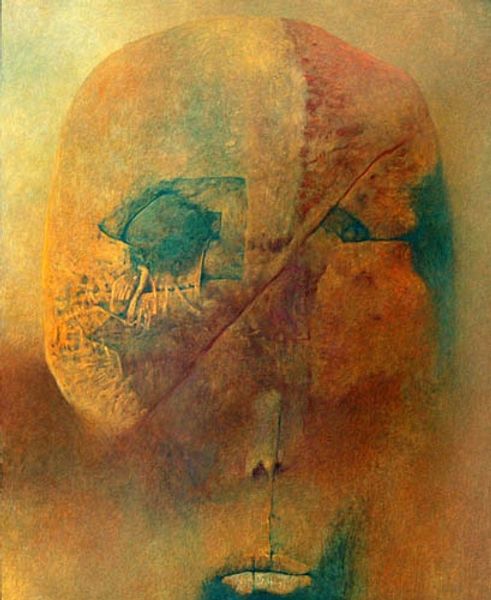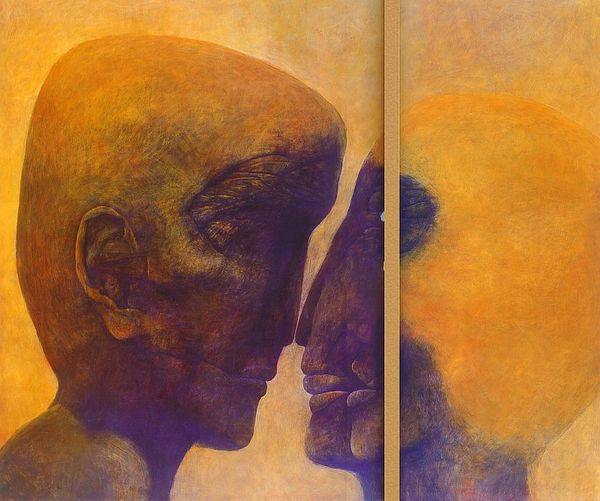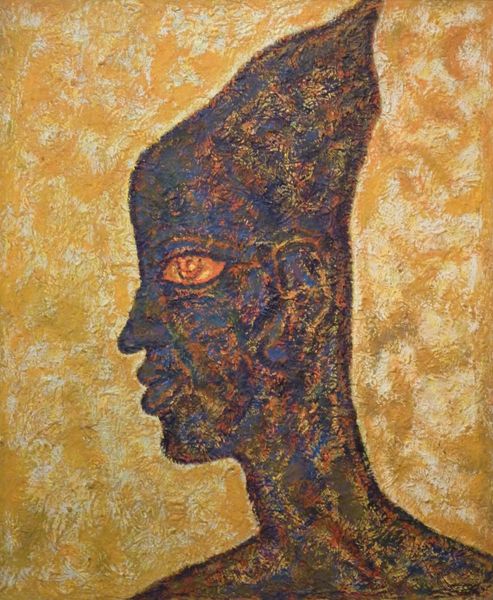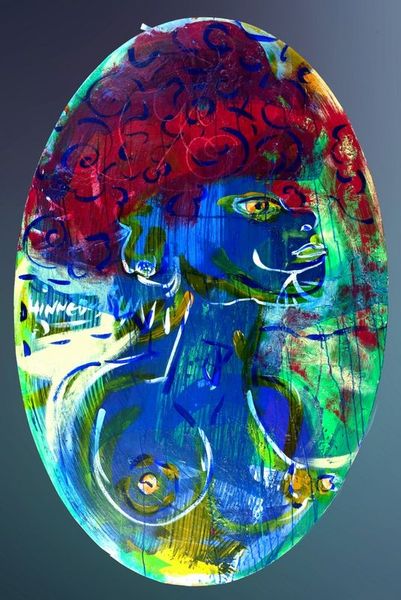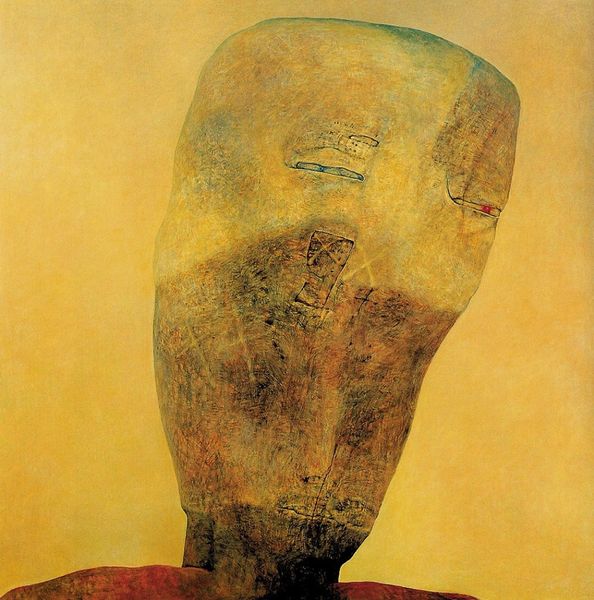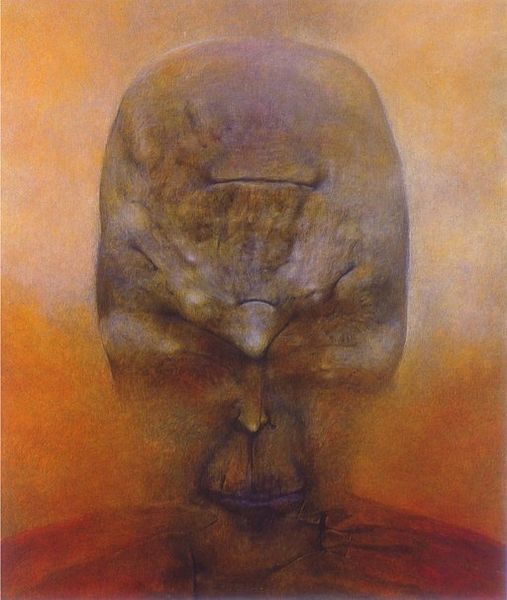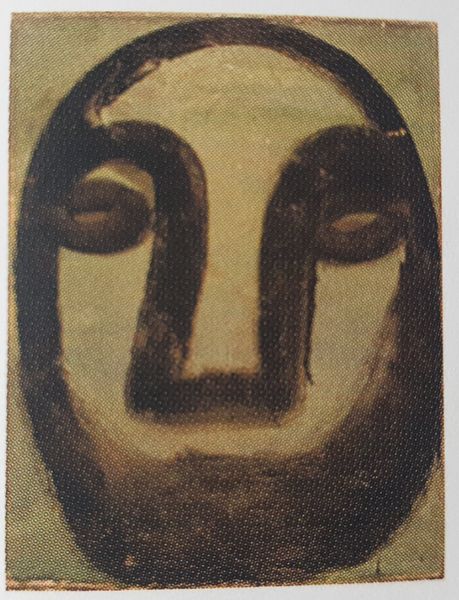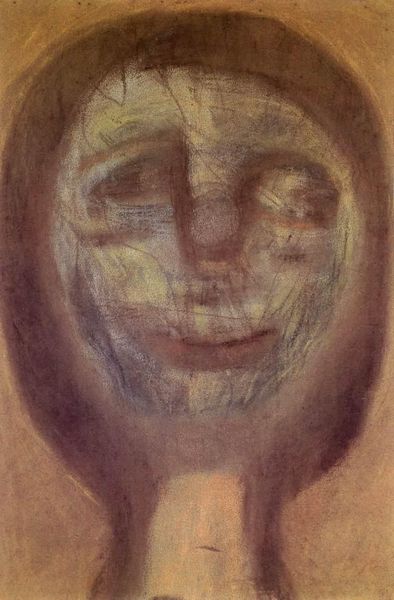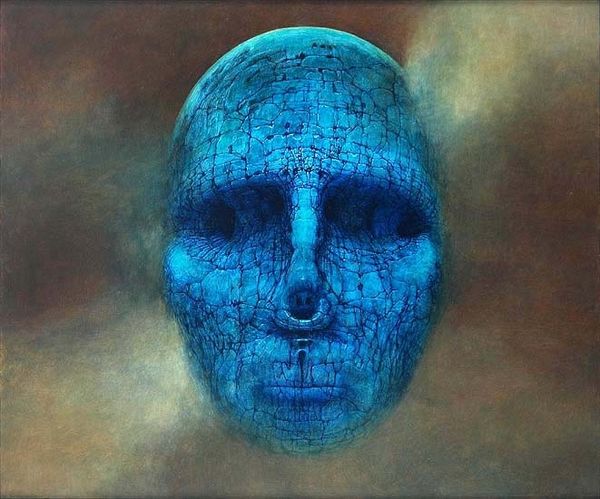
Copyright: Ernst Fuchs,Fair Use
Editor: This is Ernst Fuchs's "Observator Infinitor," painted in 1972 using mixed media and oil paint. It's... striking. The face seems both ancient and futuristic, with these smaller faces contained within the eyes. How do you interpret this work? Curator: It's impossible to divorce this from the social and political context of the time, particularly considering Fuchs's position within the Vienna School of Fantastic Realism, a group grappling with post-war anxieties and a yearning for spiritual reconnection. Editor: Anxieties? How so? Curator: Well, consider the title itself, "Observator Infinitor." An infinite observer. Who or what is observing, and what does it mean to be under constant surveillance, especially in the shadow of totalitarian regimes? The multiple faces within the main one suggest layers of identity, perhaps even fragmented selves struggling to be seen or understood. What do you think of the muted palette? Editor: I see your point; the blues and earth tones are melancholic. They give a sense of introspection but also isolation. I noticed this artwork includes both surrealist and symbolist traits; how does this duality translate Fuchs' message? Curator: Precisely! Fuchs is tapping into a broader search for meaning beyond the material. Surrealism, with its focus on the subconscious, allowed artists to challenge conventional norms and express hidden desires or fears. Symbolism then provides the visual language to critique contemporary moral, social, religious, or ideological trends. Is this "Observator Infinitor" attempting to offer a new way of seeing, of understanding the self within an ever-changing world? Or is it just an introspection on how we are shaped by society itself? Editor: It's definitely thought-provoking to consider it as more than just a fantastical image but as a commentary on societal anxieties and the search for identity. Curator: Absolutely! Art can serve as a mirror, reflecting back our own complexities and prompting critical reflection.
Comments
No comments
Be the first to comment and join the conversation on the ultimate creative platform.
